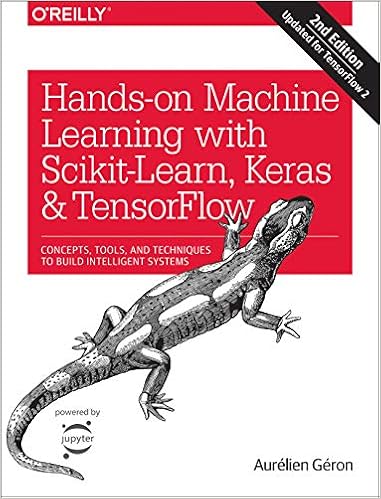|
|
||
|---|---|---|
| docker | ||
| images | ||
| work_in_progress | ||
| .gitignore | ||
| 01_the_machine_learning_landscape.ipynb | ||
| 02_end_to_end_machine_learning_project.ipynb | ||
| 03_classification.ipynb | ||
| 04_training_linear_models.ipynb | ||
| 05_support_vector_machines.ipynb | ||
| 06_decision_trees.ipynb | ||
| 07_ensemble_learning_and_random_forests.ipynb | ||
| 08_dimensionality_reduction.ipynb | ||
| 09_unsupervised_learning.ipynb | ||
| 10_neural_nets_with_keras.ipynb | ||
| 11_training_deep_neural_networks.ipynb | ||
| 12_custom_models_and_training_with_tensorflow.ipynb | ||
| 13_loading_and_preprocessing_data.ipynb | ||
| 14_deep_computer_vision_with_cnns.ipynb | ||
| 15_processing_sequences_using_rnns_and_cnns.ipynb | ||
| 16_nlp_with_rnns_and_attention.ipynb | ||
| 17_autoencoders_and_gans.ipynb | ||
| 18_reinforcement_learning.ipynb | ||
| 19_training_and_deploying_at_scale.ipynb | ||
| INSTALL.md | ||
| LICENSE | ||
| README.md | ||
| book_equations.ipynb | ||
| changes_in_2nd_edition.md | ||
| environment.yml | ||
| extra_gradient_descent_comparison.ipynb | ||
| index.ipynb | ||
| math_linear_algebra.ipynb | ||
| requirements.txt | ||
| tools_matplotlib.ipynb | ||
| tools_numpy.ipynb | ||
| tools_pandas.ipynb | ||
README.md
Machine Learning Notebooks
This project aims at teaching you the fundamentals of Machine Learning in python. It contains the example code and solutions to the exercises in the second edition of my O'Reilly book Hands-on Machine Learning with Scikit-Learn, Keras and TensorFlow:

Note: If you are looking for the first edition notebooks, check out ageron/handson-ml.
Quick Start
Want to play with these notebooks without having to install anything?
Use any of the following services.
WARNING: Please be aware that these services provide temporary environments: anything you do will be deleted after a while, so make sure you save anything you care about.
-
Open this repository in Binder:

- Note: Most of the time, Binder starts up quickly and works great, but when handson-ml2 is updated, Binder creates a new environment from scratch, and this can take quite some time.
-
Or open it in Deepnote:

-
Or open it in Colaboratory:
- Note: Colab environments only contain the notebooks you open, they do not clone the rest of the project, so you need to do it yourself by running
!git clone https://github.com/ageron/handson-ml2and!mv handson-ml2/* /contentto have access to other files in this project (such as datasets and images). Moreover, Colab does not come with the latest libraries, so you need to run!python3 -m pip install -U -r requirements.txtthen restart the environment (but do not reset it!). If you open multiple notebooks from this project, you only need to do this once (as long as you do not reset the runtimes).
- Note: Colab environments only contain the notebooks you open, they do not clone the rest of the project, so you need to do it yourself by running
Just want to quickly look at some notebooks, without executing any code?
Browse this repository using jupyter.org's notebook viewer:
Note: github.com's notebook viewer also works but it is slower and the math equations are not always displayed correctly.
Want to install this project on your own machine?
If you have a working Python 3.5+ environment and git is installed, then an easy way to install this project and its dependencies is using pip. Open a terminal and run the following commands (do not type the $ signs, they just indicate that this is a terminal command):
$ git clone https://github.com/ageron/handson-ml2.git
$ cd handson-ml2
$ python3 -m pip install --user --upgrade pip setuptools
$ # Read `requirements.txt` if you want to use a GPU.
$ python3 -m pip install --user --upgrade -r requirements.txt
$ jupyter notebook
If you need more detailed installation instructions, or you want to use Anaconda, read the detailed installation instructions.
Contributors
I would like to thank everyone who contributed to this project, either by providing useful feedback, filing issues or submitting Pull Requests. Special thanks go to Haesun Park who helped on some of the exercise solutions, and to Steven Bunkley and Ziembla who created the docker directory.